Search
Remove Ads
Advertisement
Search Results
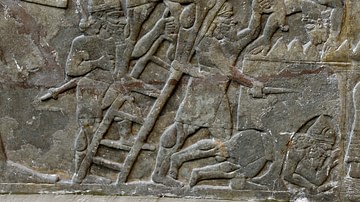
Image
Assyrian Army Besieges a City
Alabaster bas-relief depicting an attack on a city by the Assyrian army. Detail of Panel 5 (bottom), Room B, the North-Palace Palace, Nimrud, modern-day Iraq, Neo-Assyrian Empire, 865-860 BCE.
The British Museum, London.
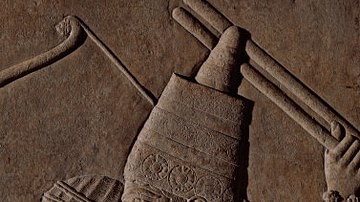
Definition
Ashurbanipal
Ashurbanipal (r. 668-627 BCE, also known as Assurbanipal) was the last of the great kings of Assyria. His name means "the god Ashur is creator of an heir" and he was the son of King Esarhaddon of the Neo-Assyrian Empire. In the Hebrew Tanakh...
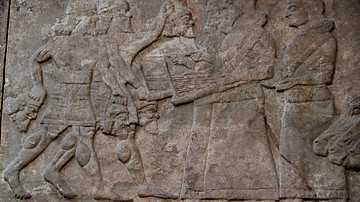
Image
Decapitated Heads of Assyrian Enemies
Alabaster bas-relief showing Assyrian soldiers holding the decapitated heads of their defeated enemy before Assyrian musicians. Neo-Assyrian Period, 865-860 BCE. Detail of Panel 6 (top), Room B, the North-Palace Palace, Nimrud, modern-day...
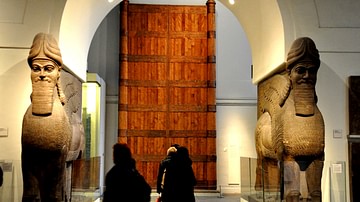
Image Gallery
A Gallery of Neo-Assyrian Kings
The Neo-Assyrian kings are among the best-known of the Assyrian Empire and include Tiglath Pileser III, Shalmaneser III, Sargon II, Sennacherib, Esarhaddon, and Ashurbanipal. The term Neo-Assyrian is a modern-day designation; the Assyrians...
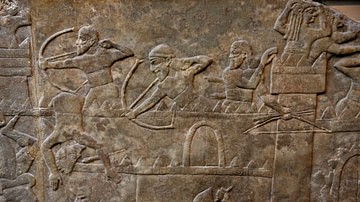
Image
Assyrian Army Assaulting a City
Alabaster bas-relief showing a massive and progressive Assyrian assault on a city. Neo-Assyrian Period, 865-860 BCE. Detail of Panel 4 (bottom), Room B, the North-Palace Palace, Nimrud, modern-day Iraq. (The British Museum, London)
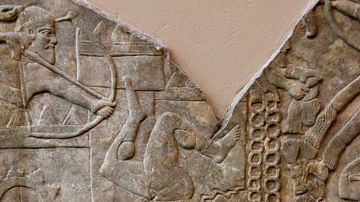
Image
Assyrian Soldiers Attacking a City
Alabaster bas-relief depicting an overwhelming Assyrian attack on a city. Neo-Assyrian Period, 865-860 BCE. Detail of Panel 5 (bottom), Room B, the North-Palace Palace, Nimrud, modern-day Iraq. (The British Museum, London)
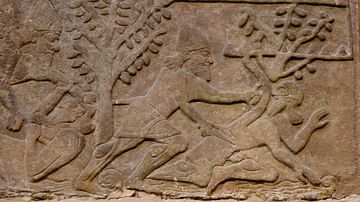
Image
Assyrian Soldiers Slaughtering their Enemies
Alabaster bas-relief showing defeated soldiers being seized and killed by Assyrian soldiers. Neo-Assyrian Period, 865-860 BCE. Detail of Panel 9 (top), Room B, the North-Palace Palace, Nimrud, modern-day Iraq. (Th British Musuem, London)
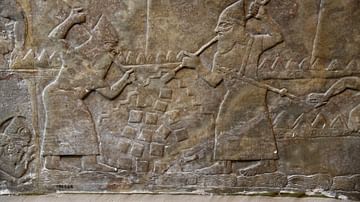
Image
Assyrian Soldiers with Iron Crowbars
Alabaster bas-relief depicting Assyrian soldiers using iron crowbars. Neo-Assyrian Period, 865-860 BCE. Detail of Panel 4 (bottom), Room B, the North-Palace Palace, Nimrud, modern-day Iraq. (The British Museum, London)
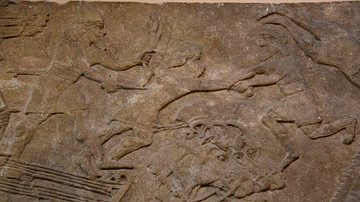
Image
Assyrian Enemies Trying to Escape
Alabaster bas-relief showing two defeated soldiers trying to escape form the Assyrian army. Neo-Assyrian Period, 865-860 BCE. Detail of Panel 9 (top), Room B, the North-Palace Palace, Nimrud, modern-day Iraq. (The British Museum, London)
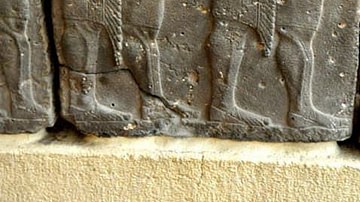
Image
Assyrian Warriors Relief
Basalt reliefs depicting Assyrian warriors of different ranks in procession with a royal chariot led by the commander-in-chief of the Assyrian army. The reliefs were acquired and gathered during the years 1848, 1946, 1948, 1982, and 1995...